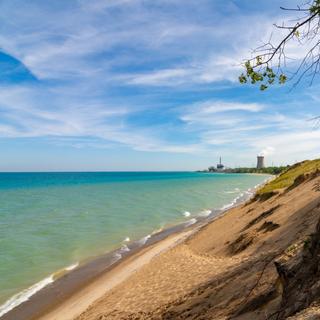Dayton, OH weather and climate in 2026
Day
4 °C
Night
-5 °C
Sea
0 °C
Precipitation
58 mm
in month
Rainy days
9 days
in month
Daylight
11 hours
average
Sunshine
5 hours
average
Humidity
72 %
Weather charts for Dayton, OH
Find more destinations like this
Closest destinations for Dayton, OH
Closest cities for Dayton, OH
Weather overview for Dayton, OH
Weather overview
Dayton, Ohio experiences a range of weather phenomena through the year. Average daytime temperatures peak at around 29 °C (85 °F) in July and dip to a chill 2 °C (36 °F) in January. Frequent rains contribute to overall precipitation, reaching its peak in May with approximately 119 mm (4.69 in). While temperatures and rainy days are of primary interest, this weather synopsis touches on wind speeds, sunlight hours, and relative humidity as well, providing a comprehensive view of what to expect. Year-round, residents prepare for shifts in weather, embracing the warmth of summer days and the bite of winter nights.
January weather
January in Dayton boasts colder temps with daytime highs around 2 °C (36 °F). Nighttime temperatures can plummet to an average low of about -6 °C (21 °F). Prepare for cold days, with an average 10 days of precipitation and a brisk wind speed of 4.
February weather
February offers marginal relief from the cold, with daytime temperatures edging up to 4 °C (40 °F). The cold nights linger with an average low of -5 °C (24 °F). Slightly fewer wet days at 9 days make it drier than January.
March weather
March heralds the beginning of a seasonal transition in Dayton, with temperatures climbing to an average daytime high of 10 °C (50 °F). Nighttimes are still cool but bearable at 0 °C (32 °F). Expect a mix of rain and the final snows of the season, totaling an average of 86 mm (3.40 in) across 11 days.
April weather
April's warmer days, with a high of 17 °C (63 °F), signal the full swing of spring in Dayton. Nights are milder too, averaging 5 °C (42 °F). This month also sees the most amount of precipitation, averaging 100 mm (3.93 in) over 12 days.
May weather
May is notably wet in Dayton, with monthly rainfall peaking at 119 mm (4.69 in) over 13 days. Daytime highs average a comfortable 22 °C (72 °F), while night temperatures are pleasantly cool at 11 °C (52 °F).
June weather
June's summer warmth arrives in Dayton with average highs soaring to 27 °C (81 °F). Nights offer respite at 16 °C (61 °F). The decrease in rainfall to 95 mm (3.72 in) and lesser wet days at 12 days make outdoor plans more reliable.
July weather
July sees the year's peak temperatures in Dayton with day averages at 29 °C (85 °F). Nights are warm too at 18 °C (64 °F). Rain remains common with an average 12 days seeing precipitation.
August weather
August in Dayton remains hot but slightly less so than July, with daytime highs around 29 °C (83 °F) and nights at 17 °C (63 °F). Wet days decrease to 9 days, hinting at a drier end to summer.
September weather
September in Dayton begins the transition to cooler weather with an average high of 25 °C (77 °F). The nights start to get chilly at 13 °C (55 °F). Rainfall is moderate at 73 mm (2.89 in) across 8 days of wet weather.
October weather
October brings clearer skies and crisp air to Dayton, with daytime highs averaging 18 °C (65 °F) and nights cooling down to 6 °C (43 °F). It's a month for enjoying the changing leaves with an average of 9 days of wet weather.
November weather
November's chill is felt with average highs dipping to 11 °C (52 °F) during the day and a cold 2 °C (35 °F) at night in Dayton. Slightly more precipitation occurs with an average of 10 days.
December weather
December in Dayton is characterized by cold and often gray days, with an average high of just 4 °C (39 °F) and nighttime lows around -4 °C (25 °F). Frequent rains and sometimes snow contribute to high wet days at 10 days.
FAQs
How many layers are essential to comfortably navigate Dayton's January chill?
Layering is key in Dayton's January weather; an insulated jacket coupled with thermal underclothes will keep you cozy against the average high of 2 °C (36 °F) and the lower nighttime temps.
Is an umbrella a necessary accessory for Dayton in February?
An umbrella can be occasionally useful, as February sees around 9 days with precipitation, although snow gear may be more fitting considering the average of 58 mm (2.30 in) rainfall equivalent.
Can Dayton residents expect the last snowfalls in March?
The final snows typically make their appearance in March, with precipitation events spanning an average of 11 days, albeit mixed with rain as spring approaches.
Does April's rainfall in Dayton require waterproof footwear?
April showers are frequent, with nearly 12 days of precipitation; waterproof shoes would be a prudent choice to navigate the 100 mm (3.93 in) of rainfall.
Is May considered the wettest month in Dayton, and how should residents prepare?
Yes, May has the highest rainfall, averaging 119 mm (4.69 in). Carrying an umbrella and wearing a light waterproof jacket would be advisable for the frequent wet days.
Are shorts and t-shirts staple wardrobe choices in Dayton during June?
Absolutely, shorts and t-shirts match the warm 27 °C (81 °F) June weather. However, keep a light sweater for the cooler 16 °C (61 °F) evenings.
Is an increase in humidity noticeable in Dayton during the hot July?
Increased humidity is indeed felt, which can intensify the heat, with average relative humidity around 70 %.
As Dayton's temperatures slightly decrease in August, is there a corresponding drop in outdoor activities?
Outdoor activities continue unabated as temps remain high at 29 °C (83 °F), and there's plenty of sunshine with an average of 9 hours per day to enjoy.
Is it time to pull out the warmer clothing in Dayton as September arrives?
Light layers become more necessary, especially during the cooler 13 °C (55 °F) nights, despite pleasant 25 °C (77 °F) days.
Does October in Dayton offer comfortable conditions for outdoor fall activities?
Indeed, October's mild days are perfect for enjoying autumn's splendor, be it for pumpkin picking or leaf-peeping excursions.
Should Dayton residents expect the first snowflakes in November?
Snow can begin to appear in November, contributing to the 84 mm (3.30 in) of precipitation. Light snowfall may occur towards the end of the month, so winter tires and warm clothing should be at hand.
What are Dayton's best strategies for coping with decreased daylight in December?
Embracing indoor activities, efficient home heating, and festive lighting can lift spirits in the reduced daylight of December, which averages around 3 hours.
We make the most from 40 years of historical weather data to predict the best weather conditions.
Deciding on where to go for a holiday is hard sometimes. Get inspired by the most popular destinations.
We aggregate data from combining multiple weather sources to ensure accuracy of the highest order.







